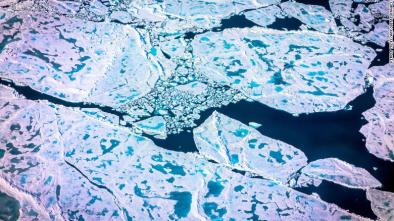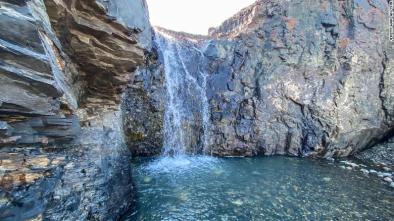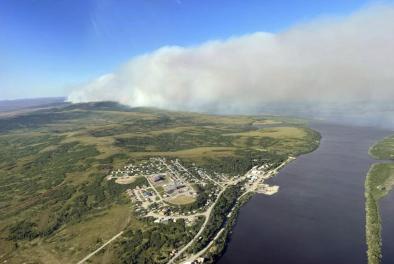Science Source
Extremes of summer climate trigger thousands of thermokarst landslides in a High Arctic environment
- States that retrogressive thaw slumps (RTS) – landslides caused by the melt of ground ice in permafrost – have become more common in the Arctic, but the timing of this recent increase and its links to climate have not been fully established
- Annually resolves RTS formation and longevity for Banks Island, Canada (70,000 km2) using the Google Earth Engine Timelapse dataset
- Describes a 60-fold increase in numbers between 1984 and 2015 as more than 4000 RTS were initiated, primarily following four particularly warm summers
- Finds that color change due to increased turbidity occurred in 288 lakes affected by RTS outflows and sediment accumulated in many valley floors
- Modeled RTS initiation rates increased by an order of magnitude between 1906–1985 and 2006–2015, and are projected under RCP4.5 to rise to >10,000 decade−1 after 2075
- These results provide additional evidence that ice-rich continuous permafrost terrain can be highly vulnerable to changing summer climate
Related Content
Science Source
| Communications Earth & Environment
The Arctic has warmed nearly four times faster than the globe since 1979
Rantanen, M., Karpechko et al
Headline

Aug 12, 2022 | Climate Nexus Hot News
The Arctic is warming four times faster than the rest of the world
Headline

Jul 21, 2022 | CNN
A 'Not Normal' Amount Of Greenland's Ice Melted Last Weekend
Headline

Jun 14, 2022 | Climate Nexus Hot News
Yup'ik People Defend Homes From Climate-Fueled Fires In Yukon Delta


